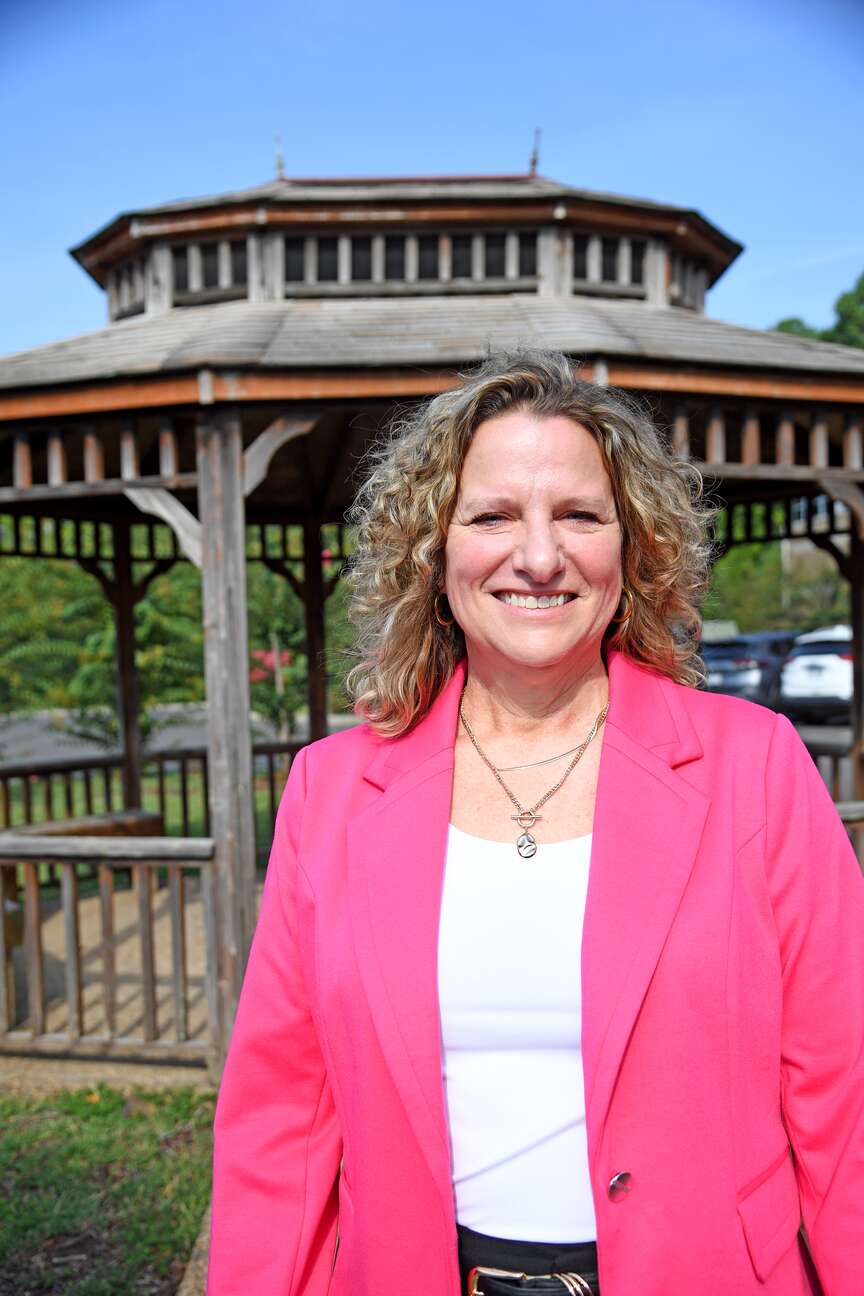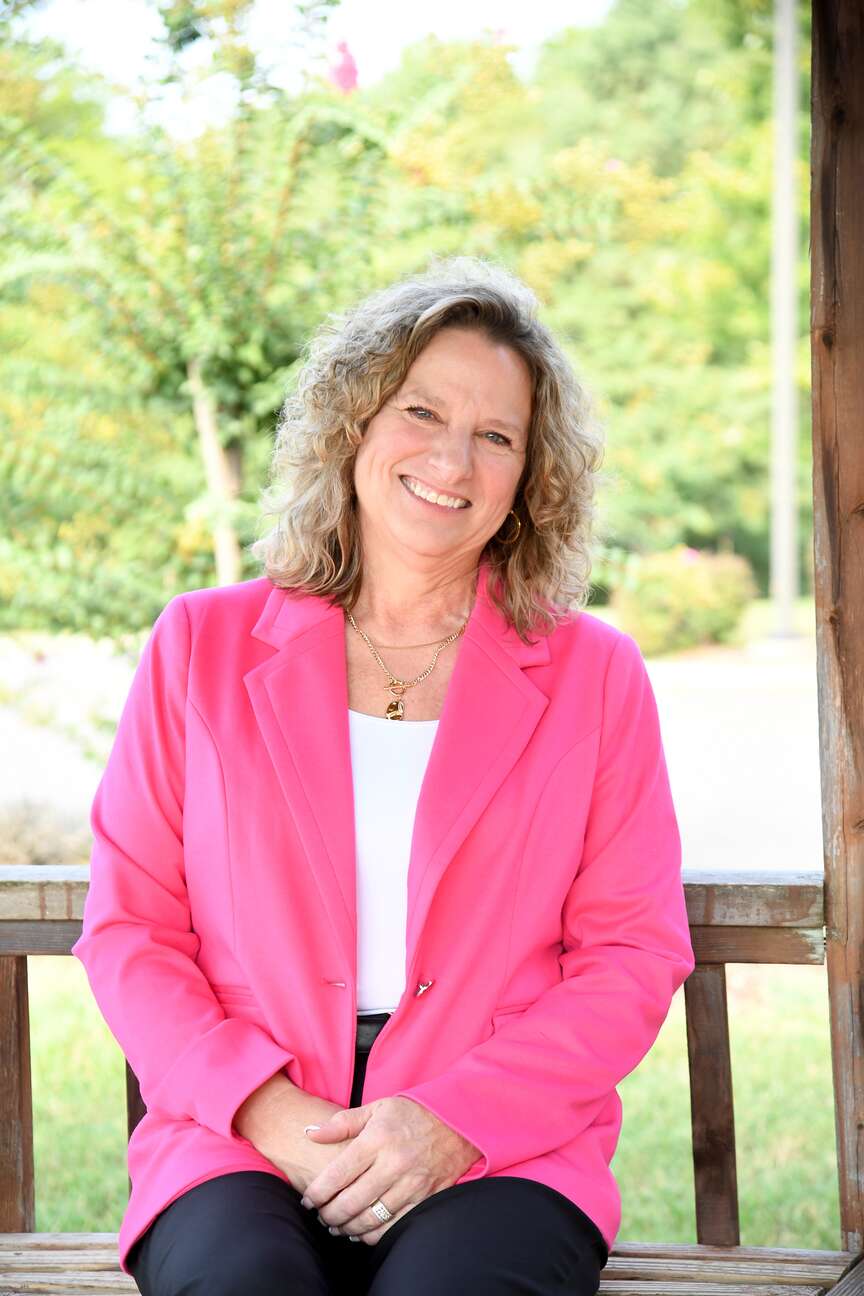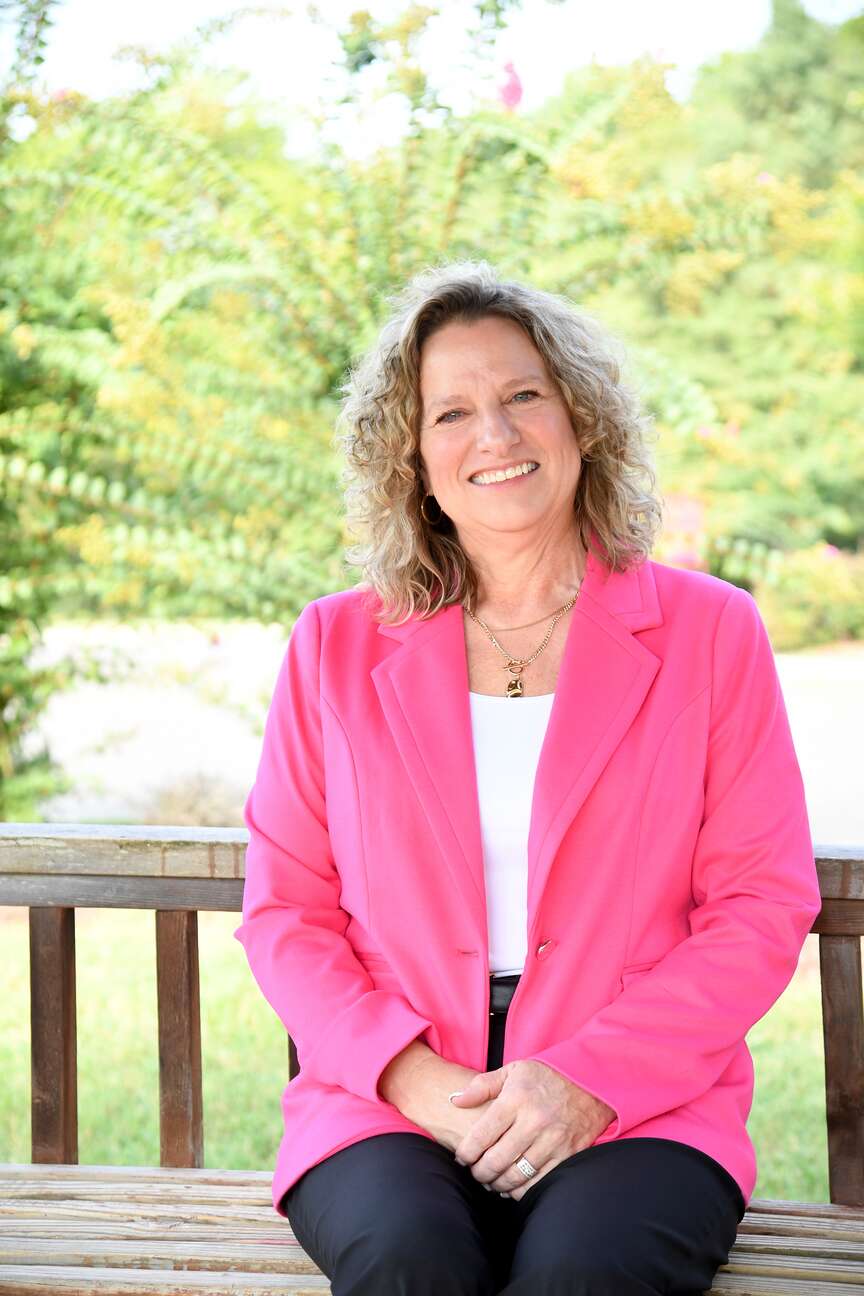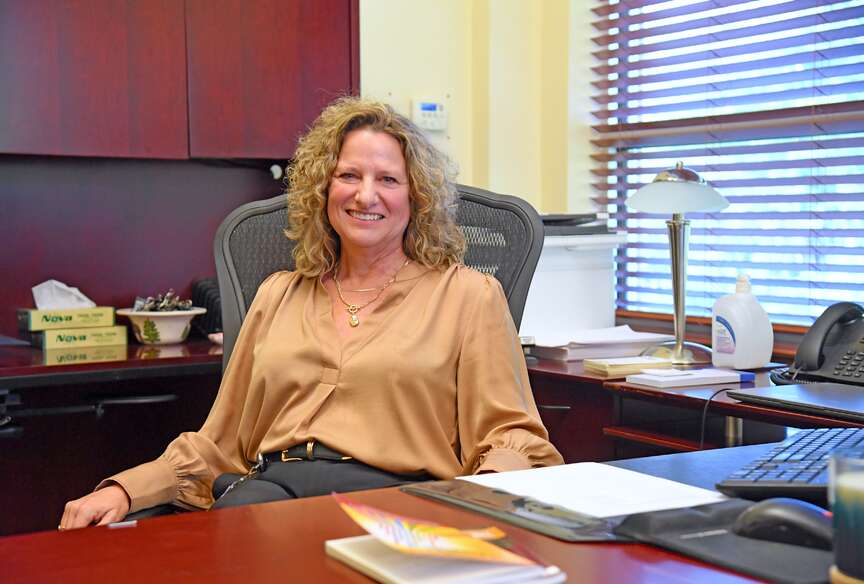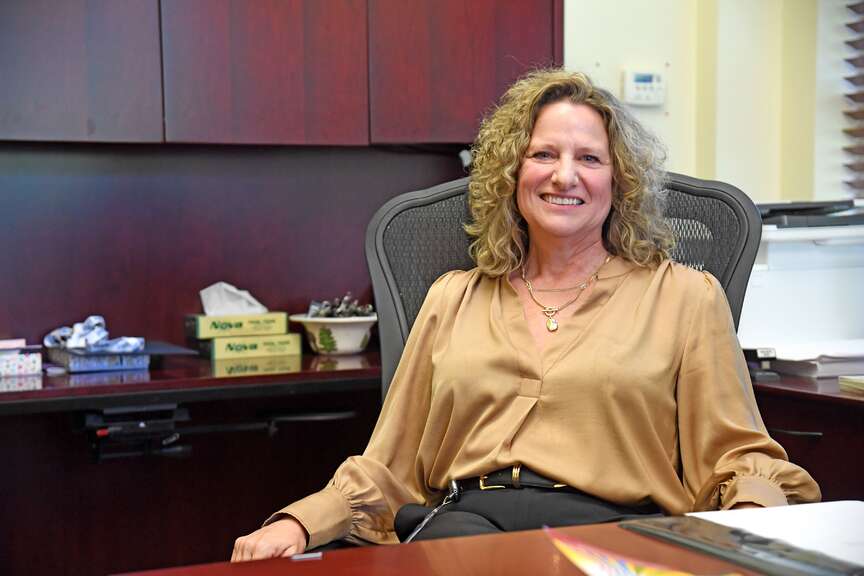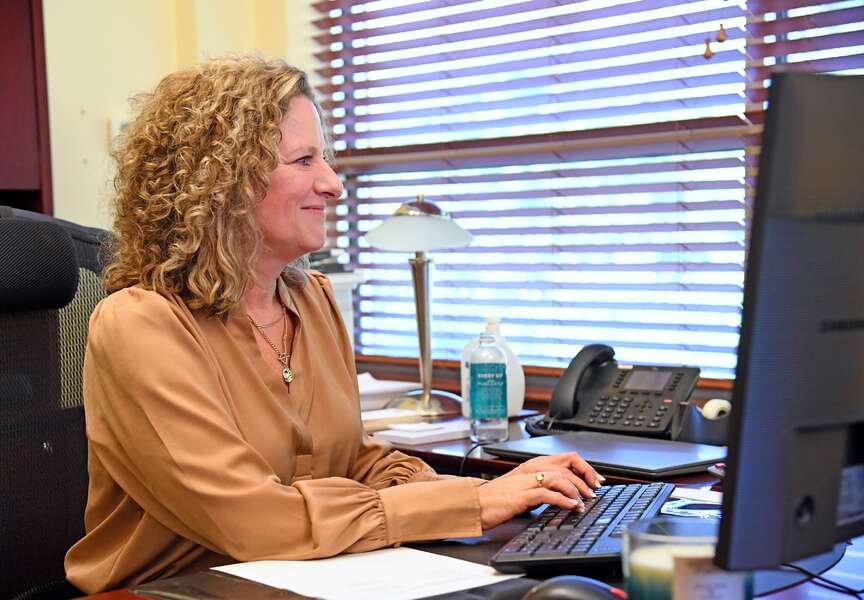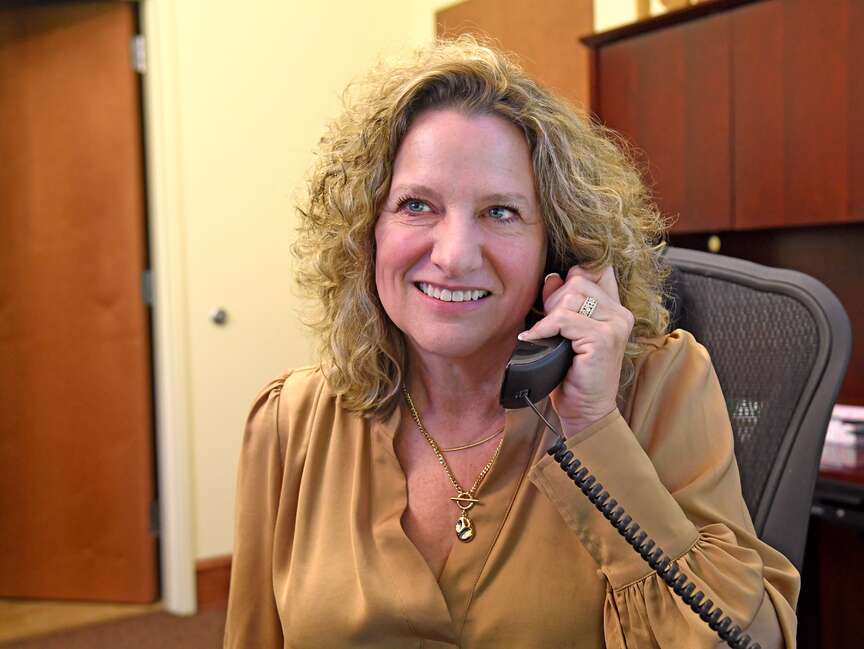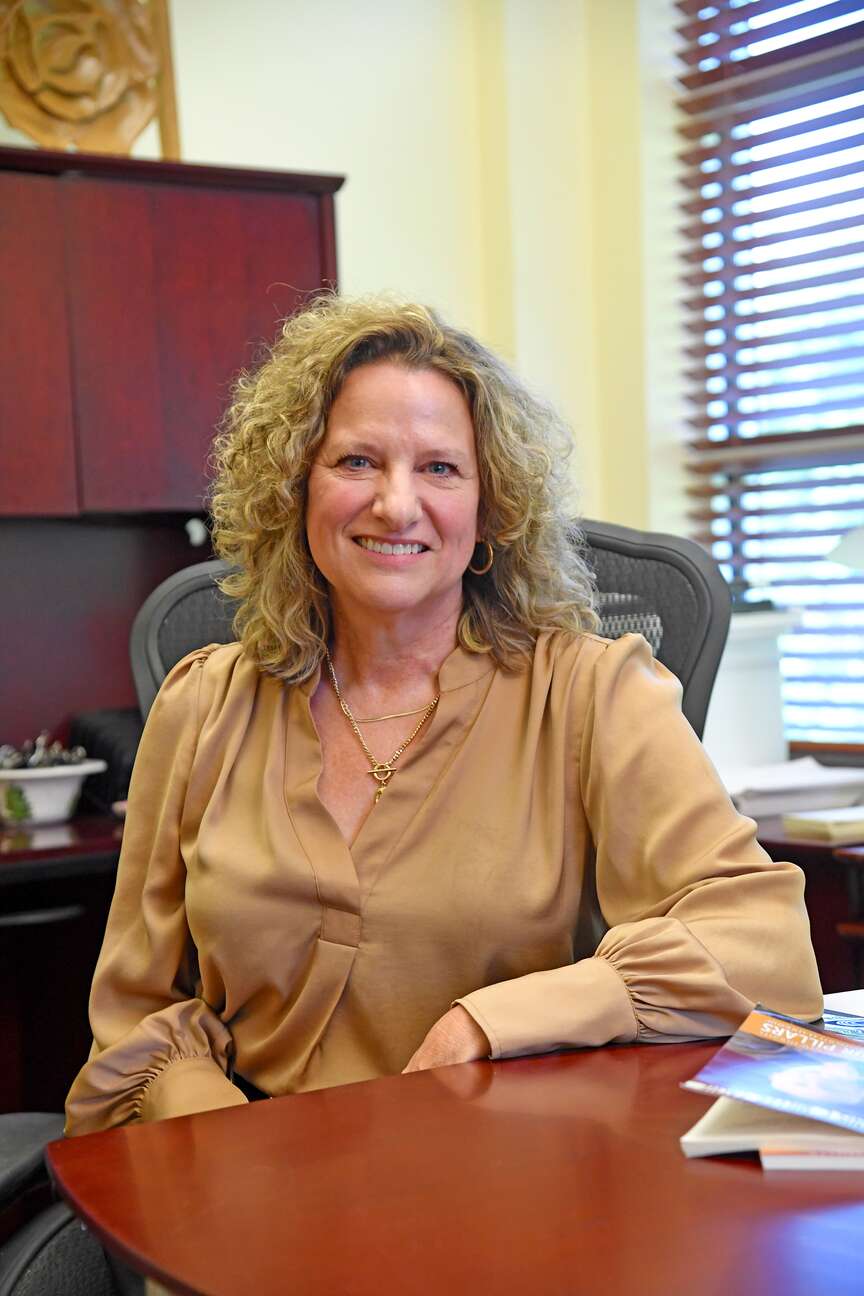Story by James Leigh
Photos by Donald Cross
Fresh out of the COVID-19 pandemic, Susan Smith thought the biggest health scare of her life was behind her, but the summer of 2021 left her reeling after learning that she had Stage Three breast cancer.
Two years after her last treatment, she is cancer-free and making history as the first female CEO of Ouachita Behavioral Health and Wellness.
Smith now advocates for regular screenings while she blazes forward in her new role as the head of the nonprofit.
"I'm one of those women that never took my health serious as far as your regular checkups," she said. "I had had one mammogram when I was, I think, 49 and then never had another one again until I was at my appointment with my primary care physician, and she says, 'Well, I think I feel a lump.'
"I'd never done regular breast exams before, but she said, 'I found something, so we're going to get you in for a mammogram.'"
The mammogram led to a biopsy that confirmed the devastating news that her cancer had spread to her lymph nodes. The news came as a shock for Smith, who had no family history of cancer.
"I'm here to tell you, you'd better get your mammograms regularly, because one in every eight women are diagnosed with breast cancer, which is ... a pretty high rate," she said.
Smith admitted hearing the diagnosis "was shocking," and brought with it anxiety and "a lot of tears."
"I just could not believe it," she said. "It was like a dream. I could not believe this was happening to me."
Smith said she chose to have a partial mastectomy in August of 2021 before starting chemotherapy that October.
"I had 16 rounds of chemotherapy, including what they call the 'Red Devil,'" she said. "That's the bad stuff, mainly because it was in my lymph nodes, and they wanted to make sure and kill everything."
Following the chemotherapy, Smith underwent 33 rounds of radiation therapy, but she continued to work throughout the treatments.
"I feel like I was pretty resilient through it all," she said, explaining that while the experience was difficult in the moment, it was not as bad as it seemed when it was over.
Two years out from her last treatment, Smith's scans continue to be clear, but she is focused on making sure to take care of herself and keep regular checkups.
"All the treatments seemed to work, and I'm continuing to be very diligent with all my medical appointments and making sure that I'm healthy and eating correctly, and I'm trying to really monitor my stress," she said.
"Stress can be a contributor to cancer as well, and so I'm trying to have that work-life balance and not get too stressed about anything that happens.
"I have the attitude that there's always a solution to whatever happens. I mean, there will always be mountains to climb, but once you climb it, there's going to be another mountain right behind it to climb over. There's nothing that we can't get through."
The support of her family, friends and colleagues helped Smith find the strength to endure the treatments, but she admits that treatment is not like what is seen on TV and in movies.
"You see in all the movies about people going and having cancer, and they're all skinny and their color is awful, but that's not really how it is anymore these days," she said. "The first four treatments were the hardest, because it was what they call the 'Red Devil.' ... I thought I was just going to be sick all the time and really just nauseous. I really didn't feel nauseous that bad."
Smith said there are medications patients can take to prevent those side effects, but in her experience the side effects were "nothing like what's in the movies."
In addition to being a breast cancer survivor, Smith is also forging a new path for OBHAW as the first woman CEO in its 56-year history.
"I think there's still a battle for women that are in executive positions," she said, speaking generally as a woman in a leadership role.
"You have to fight a little bit more, do a really good job in everything you do -- from your presentations to the way we speak to, I think, you're judged a little bit harsher when it comes to a woman being in this type of position.
"I think with people's perceptions, too, I still think there's that kind of implicit bias still around. I think it's gotten better, for sure, but ... I am happy to be the first woman over Ouachita Behavioral Health and Wellness. It's been two previous male CEOs, and I'm excited to show them what I what I can do and prove my worth."
Smith earned her bachelor's degree in criminal justice with a minor in psychology at Truman State University in Kirksville, Missouri, and started her career at a juvenile facility.
"My initial, first 'real' job out of college was I worked in a wellness program for juvenile delinquents," she recalled. "And that's kind of where I got my passion for helping others."
Smith said she then decided to pursue her master's degree. She had friends in Hot Springs and loved the community, which prompted her to move here.
"I went back to school, I got my master's in agency counseling, and then, of course, got my licensed professional counselor," she said.
While working on her master's degree, Smith was a case manager at Community Counseling Services, which eventually became OBHAW. In her 14 years with OBHAW, Smith worked in several roles, eventually working her way up to chief operating officer for the past few years before she was selected to take over for Rob Gershon when he retired.
"That started July 1 this year," she said. "So I've had a long history and know the organization well, just due to all of the different positions that I've held."
Many people might think that criminal justice and psychology are disparate fields, but Smith said her psychology studies influenced her work with juveniles.
"My internship was working in a probation office for kids, and so obviously I knew there was some psychology -- why are these kids getting in trouble?" she said. "So I felt like that kind of went hand-in-hand together because, I mean, kids that are getting trouble usually have some issues going on, and there's a reason why they're acting out or having some behavior issues."
Smith's desire to help people helped her decide to move into therapy.
"Right now, even though I'm not in a role -- I'm not doing therapy anymore ... I'm still a licensed professional counselor, but I'm helping people in a different way," she said.
"I like solving problems. I feel like I'm pretty good at solving problems and making decisions.
"Some people have a hard time making those tough decisions that nobody else wants to make, but I can do that. ... I know all decisions are not always going to be the popular decision, I'm willing to take those steps, if need be, for the betterment of the organization. That's probably what drove me into getting my master's in counseling and getting my license is just working with people that need help, and that's what our organization is all about."
One thing that Smith is working to do is craft a new vision statement for the organization.
"A vision statement should be inspirational," she said. "It should be realistic, and, of course, it should be something that everyone is on board with. Your whole organization should understand your vision and all be working towards that. Brick and mortar doesn't say what kind of organization you are. It's the people that are working and providing the services. From the people that clean the building to the front desk, we all make this organization a great place to work and a great place to receive care."
Smith hopes to share the successes of OBHAW with the public going forward.
"My own personal vision is to really build relationships with our staff and with the consumers that come and receive services from us," she said.
"I really want to focus on getting our success stories out there. We haven't done a super good job of that, and we have so many success stories with the work that we do. We're an organization that sees all different types of clients with all different types of programs.
"We're a nonprofit, so most people that work for a nonprofit, this is their passion. They're not doing it necessarily for the money. They're doing it because they want to help and serve our community, and that's what's most important."

